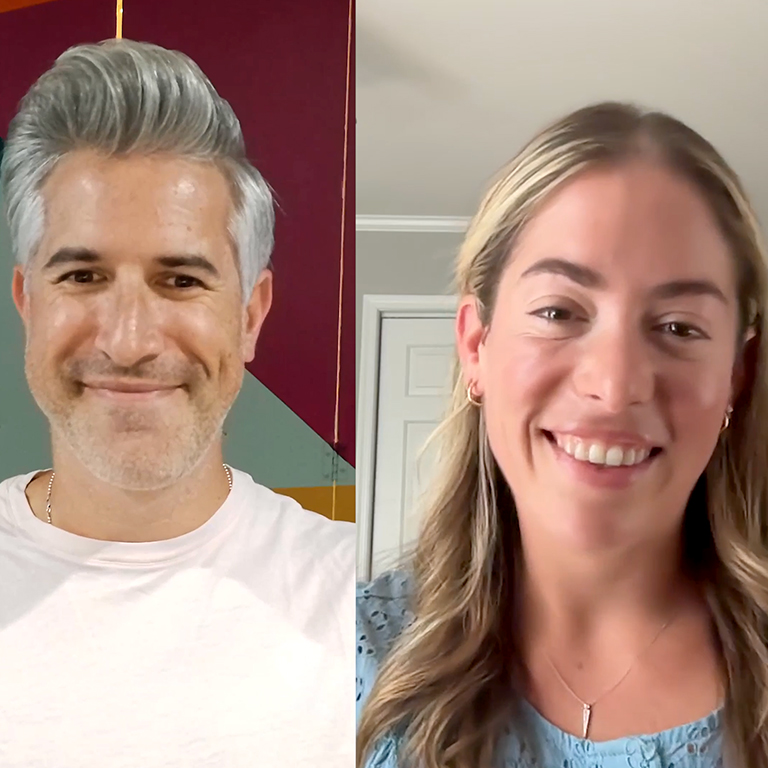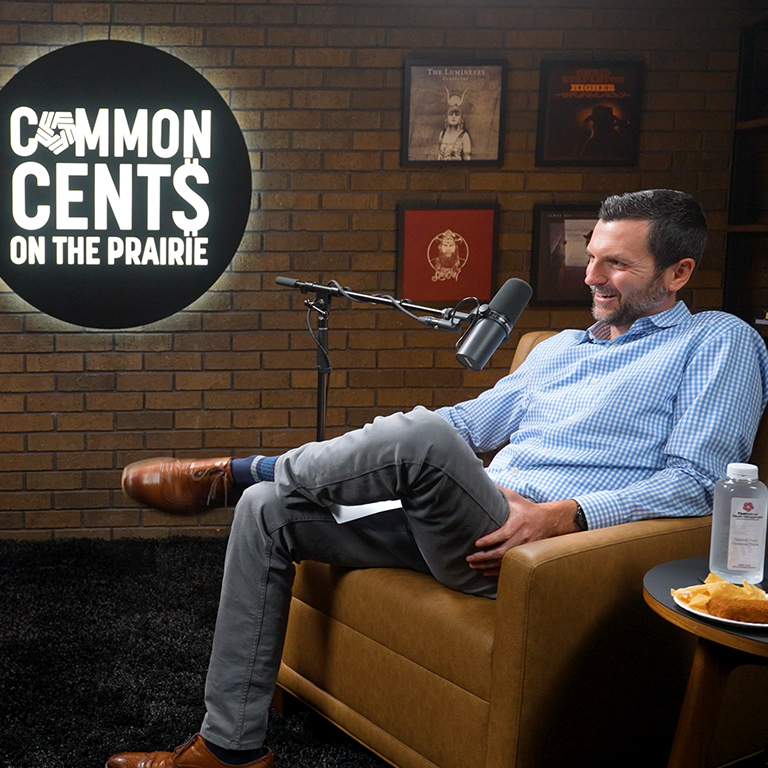Are markets more volatile in an election year?
Does the person or party in the Oval Office have any effect on my returns?
With the 2024 election right around the corner, the latest episode of our podcast, Common Cents on the Prairie™, is all about elections and how they impact your money.
“Anytime you have uncertainty enter into the picture, then you’re going to see a little bit more volatility,” said Phil McInnis, chief investment strategist at Avantis Investors®, on the podcast.
Phil joined co-hosts Adam Cox and Kyle Cipperley of First National Wealth Management to discuss the best strategies for your money this election cycle.

Here’s what we found out.
Volatility spikes during an election year, but it doesn’t last forever.
According to Phil, proof of election year volatility is best evidenced by something called “the VIX” — also known as the CBOE Volatility Index — which measures the market’s expectation of volatility for the S&P 500 Index.
“The VIX has been around since 1990,” Phil said, “so we’ve got elections from ’92 through 2020 that we can look at and observe. … And if you look over that full period, you see the VIX at around 19 and a half.”
But as volatility picks up around October of election years, Phil says, “you see it around 23 or so.”
“I think that, generally, what’s going on is there’s a little bit more uncertainty,” he said.
You likely want to be doing something with your investments. But, should you?
“I think what we’re seeing with our clients is they’re feeling that,” Kyle said, “and to try to alleviate some of that feeling of uncertainty, some of them are asking — and I think many more are thinking — ‘Is there something I should be doing with my investments leading up to the election?’”
According to Phil, choosing to take your money out of the market is a multi-step decision.
“Because there’s the taking it (out), and then there’s also the: When do you put it back in?” he said.
While it may feel good in the moment to have your money somewhere safer, down the line that feeling will turn into regret.
“You see a really significant drop in the returns for the strategy where you’re taking it out,” Phil said. “And that gets into the idea of the old adage ‘Time in the market versus timing the market.’ So that period where you’re missing out, where you’re not there, has a really big impact.”
The right financial advisor can help you keep your emotions in check.
“We know from data…the times you get hurt on a rollercoaster (are) when you get off of it,” Adam said. “So, we’re really tasked with trying to make sure that we can manage the behavior side of things — backing it up with data to make sure that people get the best possible outcomes.”
Election years, and especially years with presidential elections, are often emotionally charged times.
When it comes to managing your emotions amidst election-year volatility, Phil points to President Franklin D. Roosevelt (FDR) as an example.
“We’ve got four different times he was elected, right?” Phil said. “So, you’ve got four different election years and four different full terms to look at.”
“In two of the terms,” he continued, “the year he’s elected, returns look great. And the other two, they look terrible. … So, there’s a really wide range even with a single person.”
For Phil, the FDR example reinforces the notion that there are more factors at play than just the person sitting in the Oval Office.
Even so, “we’ve got to be ready that when that volatility shows up, you have somebody to call,” he said. “You have somebody to talk to and talk through it, hopefully a little bit less emotionally.”
Side note: If you’re looking for that person to call, Adam and Kyle are great options. Start a conversation with them here.
Instead of the results of the election, you should be focusing on things you can control.
Since election results are inherently unpredictable, Phil says investors should focus on factors over which they have more control, such as costs and diversification.
“Costs (are) something that you can have a ton of control over,” he said, adding that it’s important to look at the expense ratio of different investment strategies.
“If it’s super, super high, that doesn’t mean out of hand that it’s a bad investment strategy. What does it mean? It means that there’s a higher hurdle that that manager has to overcome each and every year for you to have a better outcome.”
Meanwhile, by diversifying your investments, you can reduce your dependence on the success of a single sector, country, etc.
“The more that you concentrate, what you’re doing is you are increasing the reliance of your portfolio return on however that one thing does,” Phil said. “You can look like a genius at times, but you can also probably feel like, you know, a not-so-smart person a lot of the time, too.”
Other strategies he outlined were to maintain an awareness of valuations and to have a relationship with a financial advisor.
How elections impact your money.
At the end of the day, Kyle sums up the best way to manage your money in an election year as this:
“The answer is to almost pretend like it’s not happening. To just stay invested, stay with your plan that you’ve worked on, and just avoid the temptation to touch your money.”
If you’d like to speak with a financial advisor about your investment strategy this election year and onward, reach out to our team at First National Wealth Management; we’re happy to help!
And, you can learn more about how elections impact your money by watching the full episode of Common Cents on the Prairie below.
Any comments, insights, or strategies discussed in this article are intended to be general in nature and, therefore, may not be suitable for you and your situation, whatever that may be. Before acting on anything written here, please consult with your attorney, CPA, and/or your financial advisor.






